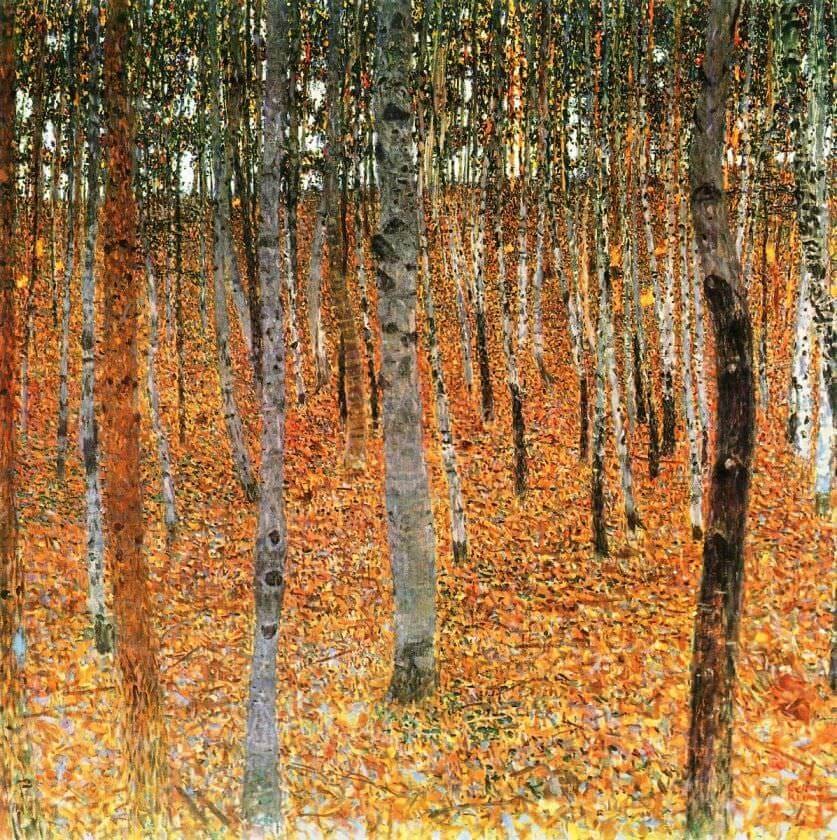Elul, by Rokhl Korn
Between home and homelessness...
It’s my pleasure to introduce you to a poet I haven’t shared before in this newsletter: the brilliant Rokhl Korn, who was truly one of the greats.
Before we get to her life and work, though, here’s something on a bit of a lighter note. You probably weren’t expecting Jimmy Buffett to come up in this newsletter, but as he died last week, I thought it would be a good opportunity to share this Yiddish adaptation of his classic novelty song, “Why Don’t We Get Drunk And Screw.”
Thanks for indulging me in a little levity, before a return to our regularly scheduled programming.
Rokhl Korn was born Rokhl Häring in what is now Ukraine, in 1898. In her late teens, she began writing in Polish—the language of her upbringing—for Zionist and socialist newspapers, and only around age 20 did she start to learn Yiddish. It always amazes me when a writer can so thoroughly master a language they come to in adulthood; in Korn’s case, she began to study Yiddish after anti-semitic violence in Poland prompted her to eschew the Polish language. Her husband, Hersh Korn, was her Yiddish tutor. From then on she published widely in Yiddish literary journals, and released her first poetry collection, Dorf (Village), in 1928.
Poet Rokhl Korn, around 1930.
Along with her husband, daughter Irena (born 1922), and extended family, Korn was largely insulated from the first two years of World War II: they lived east of the German-occupied zone, while the Soviet-Nazi truce still held. But in 1941, when Germany invaded the Soviet Union, Korn and her daughter were forced to flee as far as Uzbekistan. The two of them were the only members of their family able to escape the German onslaught: Korn’s husband, mother, siblings, and their entire families were all murdered.
Korn followed her daughter to Moscow, where her daughter enrolled in medical school, and after the war they returned briefly to Poland, then moved to Stockholm, Sweden, and in 1948 emigrated to Montreal, Canada. But Korn never stopped writing, and her poetry became a living testament to the losses she had suffered. As Seymour Levitan put it, “During and after World War II, homelessness became a major theme in her work. She now felt the obligation to speak for the Jewish people destroyed in the war. She saw herself as an eternal debtor to those who perished.”
She died in Montreal, in 1982. Her many books of poetry and prose—I haven’t mentioned the short stories or works of memoir she wrote—form one of the most vital and enduring bodies of work in modern Yiddish. For more information, a great resource on her life and writing is this website maintained by Montreal’s Jewish Public Library.
Today’s poem is called “Elul,” which is the Hebrew month in which we now find ourselves, traditionally a time of introspection and spiritual preparation for the High Holidays. She wrote this in 1943, while living as a refugee in Fergana, Uzbekistan, and published it in her 1948 collection, Heym un Heymlozikayt (Home and Homelessness).
Elul
The narrow path to the little earthen mound is likely overgrown with nettles and grass, but autumn strolls among the graves there, as if searching for the silent heart of the world. The gray stone bends down more, as if it wants to lay an ear down to the earth, to hear from the depths a sound, a sigh, a word, everything its solitary fate is to interpret. And perhaps, perhaps this will be the word that on that hot summer night extinguished itself like a star on your lips, father, when only you and death, together, were awake. And perhaps this word was appointed to me, to me, the eldest daughter of barely eleven years, and should have taught me through tears, through blood, through poetry, to grow into the raw soil of a new reality. But on that hot summer night I was so tired from play, from sun, from wind, that morning had only just awoken me when everything already said, "orphan," instead of child. It is so quiet around me here in this desert country, the autumn day withers in the sand, and the swaying humps of the long camel train carry my gaze off to the open sky's edge. The Elul wind still waits there for me, fruitlessly searching for my footsteps in the grass. Six thousand miles between me and that small earthen mound, and a border lined with death and blood.
It’s a devastating poem of grief and longing and displacement. Elul, in addition to being a month of introspective preparation for the High Holidays, is also a traditional time to visit the graves of one’s parents. Korn’s father died of tuberculosis when was about 10 years old. But as a refugee, thousands of miles from his grave, the closest Korn can come to being where he is buried is imagining the desolate wind that blows through the overgrown grasses there.
Or maybe the closest she can come is not imagining the grave, but writing it, and her absence from it, in poetry. For Korn, here as in so many of her post-Holocaust poems, writing the world she has lost becomes a way of reinhabiting that world, even as it is lost forever. Home and Homelessness—two seemingly opposite poles of experience—is the title of the book from which this poem comes. But in between home and homelessness is a liminal space where home is both present and absent at once. Korn creates that space through her art. Between home and homelessness is nothing more or less than her poetry.
And this poem leaves us with a border; it refuses to end on a stable image. Borders, after all, while claiming to be fixed and secure demarcations of space, are in fact the most unstable spaces. They are liminality incarnate, betweenness as political and cartographic fact. Poems, too, are a kind of borderland, between the poet’s consciousness and the reader’s, between the poet’s inexpressible inner world and the possibility of articulate, outer experience.
That’s how I think of Korn, above all: as a poet of borders, of liminality, of raw and honest and excruciating in-betweenness. In this poem, she faces “a border lined with death and blood.” Her family, and the rituals with which she wishes she could mourn them, and her father’s dying word, that could have guided her into this harsh new world, lie over that border. Her body cannot go there, but through her art she smuggles herself across.
But there are borders in time as well as in space. More than any physical border, the line that separates us from the past can seem the most insurmountable. And again, Korn’s art smuggles her across the border that separates her from her youth; it brings her back precisely to that liminal moment when she transitioned from being “a child” to “an orphan.”
The contemporary poet Mihee Kim writes that “We seek out words that traverse time, beyond mortal boundaries.” Yes: that seeking brings us to poetry. In Rokhl Korn we find such words. Her poems carry us with her past the borders of our narrow selves, and our binary experiences of here versus there, of then versus now, and of home versus homelessness.
Today’s visual art pairing: Gustav Klimt’s 1902 “Birch Forest 1”






Lovely. Thank you.
This is incredible! I thought each of the first two stanzas could have been a whole beautiful poem by itself, and then “And” begins the next couple stanzas, which amazingly continue the story/feeling/imagery